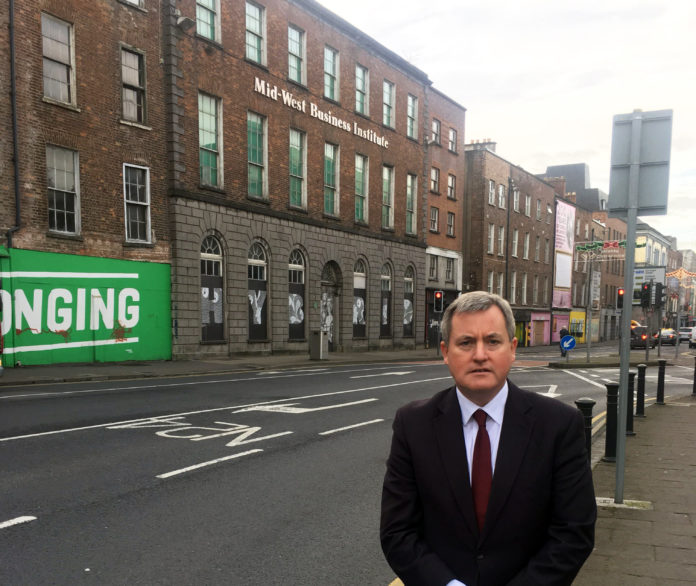
NEWS outlets and local radio in Limerick should benefit from State support in a proposed alternative public service media charge to replace the outdated TV licence fee, Limerick City Fine Gael TD Kieran O’Donnell has said
The proposal is one of the main recommendations in the Fine Gael submission to the Future of Media Commission following a detailed survey and analysis on the local media landscape nationwide by the party with feedback from almost 100 key stakeholders.
Deputy O’Donnell said a cornerstone of the Fine Gael submission is strengthening and ensuring a successful future for regional newspapers, radio stations and media outlets serving their communities in Limerick.
“A strong media sector is a cornerstone of a well-functioning democracy. We have always been lucky to have such a sector in Limerick who do their duty without fear or favour. But that sector is under severe threat and has been for some time. It needs more support,” Deputy O’Donnell said.
“Our local media organisations including, The Limerick Leader, The Limerick Post, Live95fm, Spin South West, The Vale Star and others in Limerick and beyond need support now more than ever.
“Advertising and income sources are depleting, and online sites are taking content without reimbursing those who source it, while at the same time, throughout the Covid-19 public health emergency, the value of trusted news sources has never been more important.
“Under the Broadcasting Act 2009, 7pc of the TV licence fee is diverted to a broadcasting fund which goes to the independent sector – through the Sound and Vision Scheme. This figure was just under €5.9m in 2021, while State run national broadcasters received €78m for the same period.
“This system is no longer fit for purpose and it is time to recognise that this money should be raised in a new way.
“Such a move would provide additional funds of €50m – €75m to be used to help move both State broadcasting and independent media to a sustainable future. With such a development, a new Media Commission could develop a set of strategic supports for media in Ireland.
“One option for the commission would be to establish a hub for coverage of public activities like courts, local councils etc, which might not otherwise be reported, at considerable loss to the local community,” Deputy O’Donnell said.
“A diverse range of trusted local media sources is fundamental to our society. The content created by local media is essential to ensuring our communities continue to receive accurate, up to date and diverse news stories. We must act now to protect this valuable sector.”
Other recommendations in the submission include:
- Continue existing business supports for the local media sector until the economic recovery is secured.
- Recognise the reach of local media and its reputation as a reliable and authoritative news source when evaluating what constitutes public service in the media sector and when Government is disseminating public information content.
- Develop a new, broader concept of what constitutes public service content in the media sector, acknowledging the way in which many sources of media outside the present supported segments provide a genuine public service to their communities, without which their fabric would be considerably weakened.
- Deploy the extra revenue generated by this new licence fee mechanism to support content across the entire media sector, with a range of supports to build capacity of journalism and to develop innovative content to be used on diverse platforms.
- Transpose the Copyright Directive in a manner which ensures a mechanism through which publishers are remunerated at an equitable rate for the use of their content, bearing in mind the very different market power of platforms and content providers.
- Develop a verification mark for local media services to demonstrate reach and relevance and to instil confidence and trust among audiences.
- Fulfil the Programme for Government commitments to: publish the statutory report on the Defamation Act (2009), and progress, publish and enact the Defamation Amendment Bill – the aim of which is to achieve an appropriate balance of the right to one’s good name and freedom of expression.
“The pandemic has shown us how important local news sources are for their readers and listeners. People rely heavily on trusted media outlets. To ensure this continues, they have to be supported by Government,” Deputy O’Donnell said.










